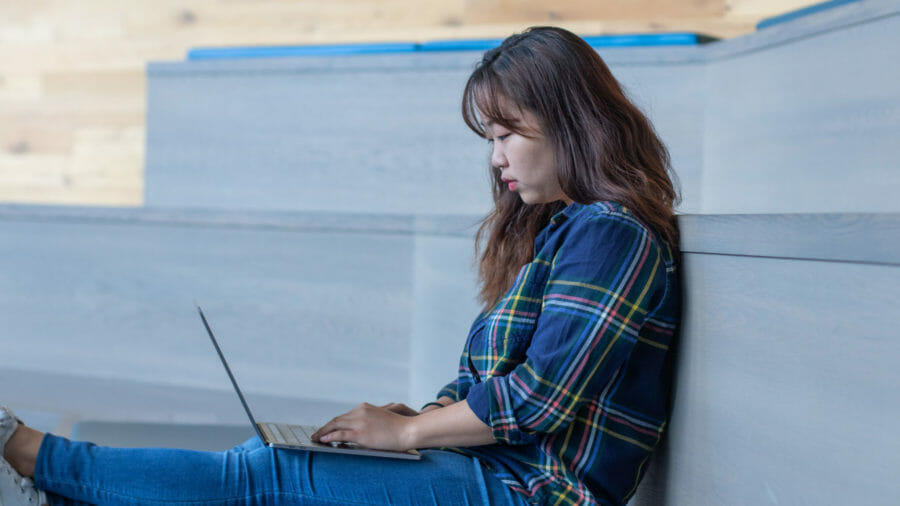By Alan Oathout
“For again Scrooge saw himself. He was older now; a man in the prime of life. His face had not the harsh and rigid lines of later years; but it had begun to wear the signs of care and avarice. There was an eager, greedy, restless motion in the eye, which showed the passion that had taken root, and where the shadow of the growing tree would fall.” Charles Dickens, A Christmas Carol.
One of my enduring childhood memories involves a certain trip to the library when I was perhaps seven or eight years of age. As usual, I had piled up a hefty stack of non-fiction books—probably on dinosaurs or insects, given my obsessions at the time—and hauled them through the whisper-quiet stacks to a checkout desk that stood taller than I did. Our hometown librarian was absent that day, and her substitute was straight out of central casting: a tall, thin woman with gray hair and spectacles who fancied herself a gatekeeper.
“These are very advanced for his age,” she said to my brother, who was five years older than I. Her disapproving tone made it clear she was seriously thinking of vetoing my selections.
“That’s okay,” my brother replied without hesitation. “He reads books like these all the time.”
The librarian’s severe expression softened. She relented, even complimenting my interest in learning. I left the building with an armload of books, and a glow inside I had never experienced before. I remember thinking how strange it was that my brother understood something about me that hadn’t been part of my conscious awareness and that an unfamiliar adult might view this trait as something noteworthy.
The shadow of the growing tree…
Modern research has shed new light on how—and when—this thing we call human personality develops. While there are still many unanswered questions about the timeline, there are some generally recognized understandings.
Biological, genetic, and environmental forces begin to impact a person early – even in utero, some evidence suggests. Children are born with temperaments, which gradually crystallize into traits, the roots of which begin to take hold within the first three to five years. By seven to eight years, a significant core is certainly in place. This core becomes the framework on which the complexity of the eventual adult personality is assembled, with much of this work occurring during the pre-teen and teen years.
Parents and teachers know this intuitively. In fact, longitudinal studies that track children over extended periods of time have suggested that adults are fairly accurate in predicting where the shadow of the growing tree will fall. (“We knew early on Johnny was going to be good at ______.”)
Autobiographical narratives or origin stories are a unique way to help unpack the meaning of the adult personality.
Some may wonder if it matters. If we already know the adult personality, through assessment or experience, should we care about the earliest roots? I think we should, for several reasons.
- As the PI Behavioral Assessment illustrates, each of us is a collection of numerous motivations and behaviors. Those that form earliest are apt to have the strongest pull on our adult selves, because of their foundational relevance. The earliest-emerging drives often serve as the true, foundational core.
- In asking a person to reflect on childhood memories, we allow them to self-select and reveal the parts of themselves that have the most impactful meaning from that individual’s perspective. As outsiders, we can form an objective impression through the PI Behavioral Assessment, but it is also useful to know what specific aspects of the profile hold the deepest and most longstanding significance.
- Sharing favorite childhood stories is natural and a fun way of relating both similarities and differences. “When I was a kid” memories can be a unique and entertaining window to further team cohesiveness, trust, and understanding.
Try asking those around you, or try it with yourself. Examples include:
“Tell me about a favorite story from your childhood that illustrates the kind of personality you would have as an adult.”
“What is one of your favorite childhood memories that points to the kind of personality you have today?”
“Do you think your parents and/or teachers could have predicted your adult personality? What did you do as a kid that would have been a foreshadowing?”



